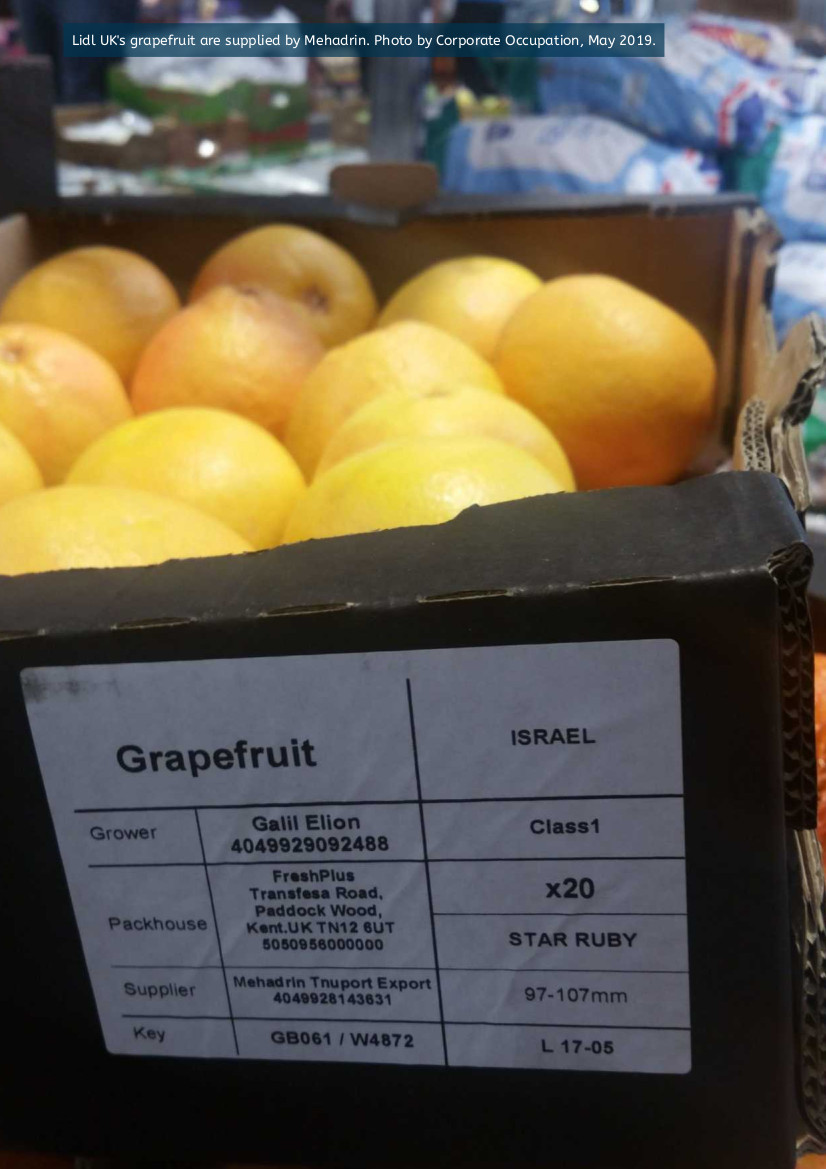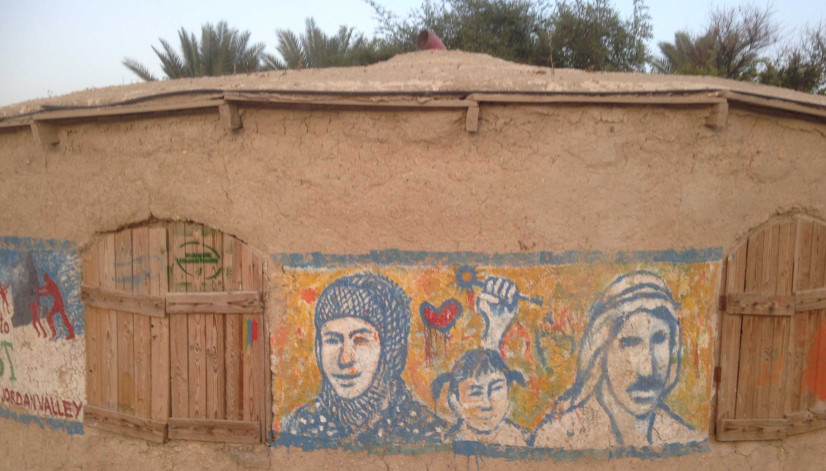In a climate in which the call for a consumer boycott of Israeli goods is finally gaining strength, one area of Israel’s economy is, as yet, surprisingly under-researched. Most of Israel’s industrial zones in the West Bank are connected to illegal residential settlements and provide an indispensable economic backbone to the local settler economy. Mishor Adumim is the second largest industrial zone in the Occupied Territories and the one through which the Palestinians have the most to lose.
Benny Kashriel is the mayor of Ma’ale Adumim (the collective name for the settlement block of which Mishor Adumim is part) and is not shy about the importance of the industrial zone for the continued expansion of the settlement. In an article by The Jerusalem Report he is quoted as saying “My dream is to build Adumim all the way to Jerusalem […] to be a legal part of the land of Israel, but to be economically independent of Jerusalem. That will be accomplished thanks to Mishor Adumim”i. Unfortunately for the Palestinians, he is not alone in this dream. Ma’ale Adumim is expanding faster than any other settlement in the West Bank; its population has grown from 15,000 when Kashriel became mayor in 1992 to around 35,000 today. It is at the centre of the controversial E1 (East 1) project, which aims to cut the West Bank off from East Jerusalem and facilitate the expansion of Ma’ale Adumim, therefore destroying any possibility of what is frequently referred to as a “viable Palestinian state”.
Human and Environmental exploitation
To date there are approximately 18 illegal Israeli industrial zones of varying sizes scattered throughout the West Bankii, the most substantial being Hinnanit, Barkan, Ariel, Ma’ale Efrayim, ‘Ataroy, Qiryat Arba’ and Mishor Adumim. Collectively those seven cover 302 hectares of Palestinian land, 110 of which are taken up by Mishor Adumim itself. For Israeli businesses, relocating to a settlement industrial zone can seem like an attractive option: they receive lucrative tax reductions, and both environmental and labour regulations are far more lax than inside Israel itself. As a result the zones tend to house a large number of industries which deal with toxic materials and harmful waste. For example, Mishor Adumim’s main businesses work with plastic, cement, leather tanning, detergents, textile dying, aluminium and electro-plating. Lack of proper checks regarding workers’ rights also means that companies exploit this loophole to minimise their labour costs. Inevitably, large proportions of the workforce in these areas are Palestinians working for well below the Israeli minimum wage (see, for example www.corporatewatch.org/?lid=3459”>Corporate Watch on Royal Life workers in Barkan industrial zone
In November 2008, Soda Club, one of the more well known companies based in Mishor Adumim, came under scrutiny after Swedish human rights organisations acted on a report by the Israeli labour rights organisation Kav LaOved, which had exposed exploitation and discrimination against Palestinian workers inside their plant. After a successful campaign, Empire, the company which oversees the distribution of Soda Club components in Sweden, was forced to request that products made by the company for the Swedish market be manufactured outside of any illegal settlement zone. Soda Club reluctantly agreed. However, it is uncertain how this is being enforced. As Soda Club has seven factories it is plausible that it could simply have moved certain aspects of its manufacturing process to another plant inside Israel, but details are hard to come by. Requests for information about the location of the new manufacturing site/s have so far gone unanswered by both Empire’s representatives and Diakonia, one of the groups that campaigned for the move. Soda Club itself remains as secretive as ever. On a recent visit to Mishor Adumim it became obvious that this is not a company happy with scrutiny: its premises are the most heavily protected in the area, with multilevel electric fencing protecting its perimeters and cameras monitoring everything going on outside of them. In fact, as journalists have found out previously, the factory has a ban on media (and presumably Corporate Watch researchers) in order to, in their words, ‘[…] protect against industrial espionage’iii.
The Jahalin Bedouin and Mishor Adumim’s land theft
It is not only the Palestinian workers who are compromised by Ma’ale Adumim’s continuous economic and territorial expansion. Ever since it was established in 1976, the settlement has been a threat to the survival of the Jahalin Bedouin, who settled in the area after 1967 when the Israeli army confiscated much of their original land forcing them to give up their traditional nomadic lifestyle. During the 1990’s, there were between 100-120 court orders for their eviction as Israel attempted to grab more and more land. In 1996, a mass eviction of around 4000 Bedouins was carried out.
Few other places offer such a sharp, visual example of the catastrophic consequences of the occupation. Walking around Mishor Adumim you get the impression that the industrial zone has simply been dropped on top of the Bedouins and swallowed their community whole. In contrast to the residential part of the settlement, there is no heavy physical separation between the industrial zone and the desert land of the Jahalin, and although Bedouins can be seen riding through the factory areas on donkeys, Israeli’s apartheid mentality is still in force. Whilst Palestinians can work under exploitative conditions in the zone, they are not allowed to enter it by car and they are constantly observed by the surrounding military watchtowers. As is often the case, the clearest sign of the attempted ethnic cleansing of residential Palestinians from the area can be discerned in Israeli control of resources: whilst the settlement has several large water tanks, surrounded by strong fencing, the tents which the Bedouin live in have no access to running water and they are not allowed to use the water located right next to them. Instead, one man tells us, they have to drive a mobile water tank by tractor to Jericho and pay to have it filled up with water from the Israeli national water company, Mekorot. This journey takes between half an hour and an hour.
A future for industrial zones?
Business areas like the industrial zones are at the forefront of Israel’s brutal occupation of Palestine, facilitating ethnic cleansing and acting hand-in-hand with the Israeli state in their quest for territorial dominance. Whilst business managers like to pretend that settlement factories are harmonious work places where Palestinians and Israelis work happily, side-by-side and on the same terms. This is very far from the truth. Although an Israeli Supreme Court recently ruled that Palestinian settlement workers are entitled to the Israeli minimum wage, the Israeli Ministry of Industry has claimed that this ruling does ‘not expand to the criminal enforcement of the state’iv. In other words, the Palestinians are very unlikely to see any improvement in wages unless they take the risky step of starting a civil claim against their employer.
Recent developments in the European courts might indicate that there is some light on the horizon. At the end of October 2009, Advocate General Yves Bot, a senior advisor to the European Court of Justice in Luxembourg, gave the opinion that Brita, a German company importing products from Soda Club in Mishor Adumim, should repay the money it had saved by importing its stock under the preferential trade agreement that exists between Israel and the EU. He meant that goods from illegal settlements could not benefit from the agreement. If this stance is accepted it may serve as precedent for future cases, making the settlement trade less profitable. Other companies that still appear to trade from Mishor Adumim are Makita, DAF, Hometex, Volvo and Scania. To effectively challenge Israeli industrial settlements it is vital that these companies’ activities are targeted by campaigns similar to those that successfully exerted pressure on Soda Club.
i See www.jr.co.il/ma/manews03.htm (accessed 14/11/2009).
ii See www.poica.org/editor/case_studies/view.php?recordID=1140 for numbers (accessed 13/11/2009).
iii See www.businessweek.com/globalbiz/content/jul2009/gb20090714_889274.htm (accessed 17/11/2009).
iv See www.kavlaoved.org.il/media-view_eng.asp?id=2097 (accessed 17/11/2009).
For original article see here http://www.corporatewatch.org/?lid=3477
Uncategorised
Apartheid in the Fields: From Occupied Palestine to UK Supermarkets (2020 Update), Endnotes
Here are the references for our 2020 update to Apartheid in the Fields P3. Introduction https://mondoweiss.net/2019/11/un-publishes-database-ofcompanies-profiting-off-human-rights-abuses-not-on-israel-but-myanmar/ P4. The ongoing ethnic cleansing of the Jordan Valley https://btselem.org/jordan_valley See, for example, https://corporateoccupation.org/2010/08/11/the-jordan-valley-meeting-point-the-jewish-national-funds-racist-alternative-reality/ https://m.btselem.org/jordan_valley http://jordanvalleysolidarity.org/reports/al-jazeera-how-israel-engages-in-water-apartheid/ http://jordanvalleysolidarity.org/reports/al-jazeera-how-israel-engages-in-water-apartheid/ http://jordanvalleysolidarity.org/news/tractors-and-water-tanks-confiscated-in-al-maleh/ http://jordanvalleysolidarity.org/wp-content/uploads/2008/03/jv%20map%20tony.jpg Read more…



5 Comments
Activists respond to Sodastream's defense of profiting off the occupation · 10th January 2012 at 3:36 pm
[…] – B'Tselem, "Foul Play: Neglect of wastewater treatment in the West Bank" – Corporate Watch, "Occupation Industries: The Israeli industrial zones" – Bloomberg Businessweek, "EU Eyes Exports from Israeli Settlements" 8. "Following the […]
ITALY: Sodastream’s reply fails to convince 12Jan12 | Australians for Palestine · 11th January 2012 at 2:01 pm
[…] “Foul Play: Neglect of wastewater treatment in the West Bank“ – Corporate Watch, “Occupation Industries: The Israeli industrial zones“ – Bloomberg Businessweek, “EU Eyes Exports from Israeli […]
Sodastream’s reply fails to convince « Dandelion Salad · 15th January 2012 at 6:28 am
[…] – Corporate Watch, “Occupation Industries: The Israeli industrial zones“ […]
Settlement expansion in the Mishor Adumim industrial zone | khamakarpress.com · 11th January 2013 at 9:10 pm
[…] Occupation Industries: The Israeli Industrial Zones […]
Settlement expansion in the Mishor Adumim industrial zone « altahrir, news of Islam, Muslims · 11th January 2013 at 9:11 pm
[…] Occupation Industries: The Israeli Industrial Zones […]